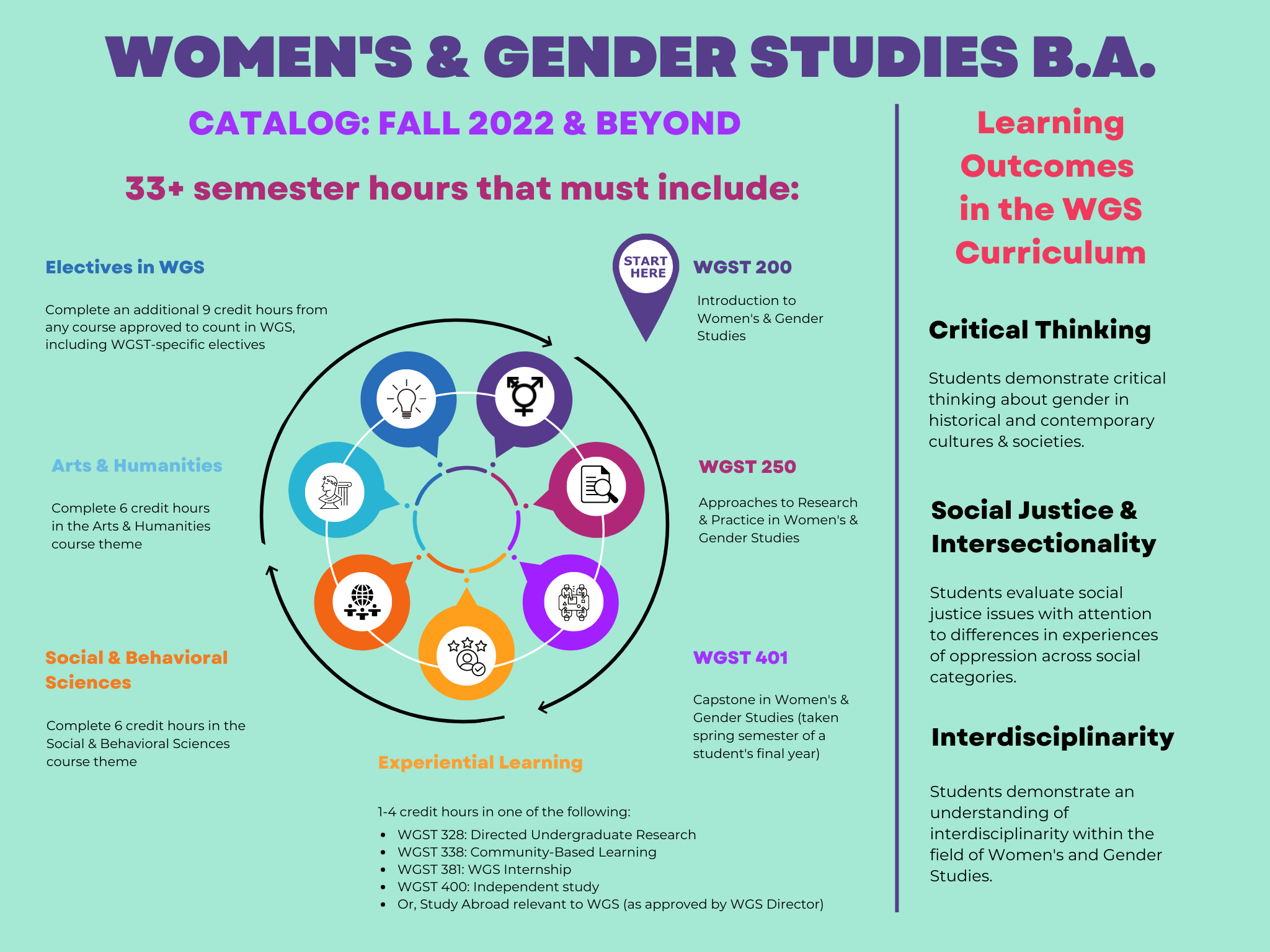WGS Major and Minor
Overview of the WGS Major
Our WGS program will teach you to form your own opinions regarding important issues – including power, justice, families, sexuality, gender, race, and class – and how to act on them. It will encourage and empower you to examine the world and determine the ways in which you can make a difference.
WGS is definitely not your typical major. This is one of the few disciplines that teaches you to excel in the community as well as the classroom. WGS majors become leaders in their academic pursuits and in their activism. Our program emphasizes the value of diversity, and of relationships and coalition building. And this field is unique in preparing students to communicate across differences in background and viewpoint. Few areas of study accomplish this so directly.

Overview of the WGS Minor
Through the WGS minor, you’ll be able to devote yourself to the study of women and gender in different cultures, contexts, and time periods. The program also explores the intersections of gender, class, race, ethnicity, age, religion, and sexuality. We discuss complex cultural issues—from historical to contemporary controversies—and teach students to think on their feet and develop a range of analytical approaches.
You’ll also have tremendous latitude in selecting courses. Therefore, you can easily structure the minor to complement your major field of study. But most importantly, the experience and knowledge you will gain by choosing the minor in Women’s and Gender studies can give you a distinct advantage for future employment or graduate study.
WGS Major & Minor FAQ:
What are the different course categories? How will they affect me as I plan my courses?
Because WGS is an interdisciplinary field of study, all students are encouraged to take courses from across the two course categories (Social & Behavioral Sciences and Arts & Humanities). Majors are required to complete at least two courses from each of these categories to graduate. Multiple courses from each category are offered every semester, making it easy for students to find courses that interest them from each category.
What is the “experiential learning” requirement, and how can it be fulfilled?
We want to be sure that at least some of your learning is "hands on." WGS majors must choose one of these, while minors have the option to complete a:
- WGST 328 Directed Undergraduate Research (1-4 credit hours)
- WGST 338 Community-based Learning (1-4 credit hours)
- WGST 381 Women’s and Gender Studies Internship (1-4 credit hours)*
- WGST 400 Independent Study (3 credit hours)
- Study Abroad relevant to WGS (as approved by the WGS Director)
* for more information on completing a WGS internship, please reach out to the program director, Kris De Welde.
What is advising like in Women’s & Gender Studies? How often will I meet with my advisor?
WGS does not require students to seek formal advising in order to register for courses, but we encourage students to meet regularly with their assigned advisor.
I’m thinking of double majoring/double minoring. Is this possible? What other disciplines pair well with Women’s & Gender Studies?
Absolutely! In fact, most WGS students do have additional majors and minors. While WGS stands alone as a marketable and rewarding degree, WGS is also a great compliment to any other field because what we study -- gender, sexuality, race/ethnicity, power, inequality, to name a few -- is relevant in any context.
I’m a first-year student and I already know that I want to declare a Women’s & Gender Studies major/minor! What steps should I take to declare?
We can't wait for you to join us! Visit the Academic Advising & Planning Center's Declaring Your Major page to learn more about the steps to declaring a major or minor in WGS.






